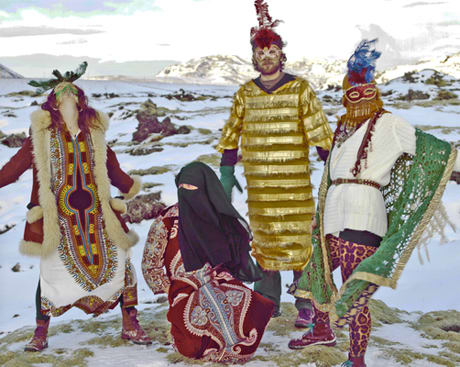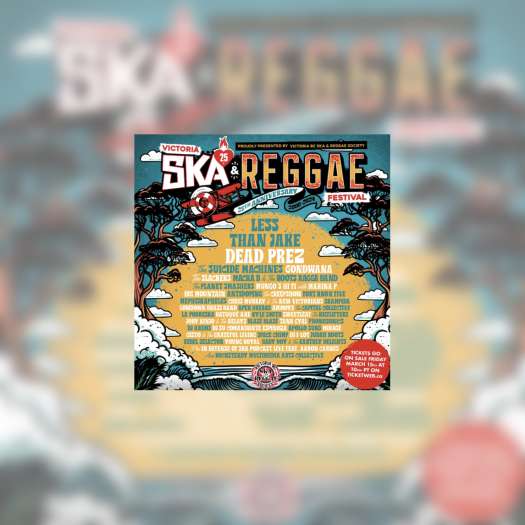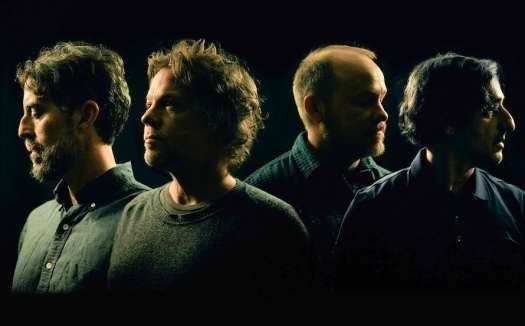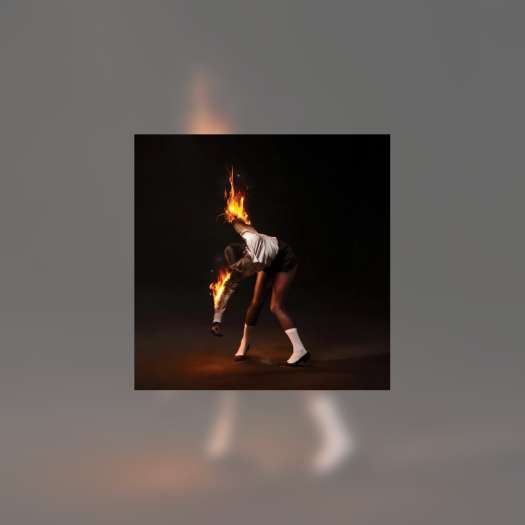Reading through all of the literature, reviews and interviews that have amassed since they burst on the scene in 2012, it's hard to tell if anyone truly knows anything about the Swedish psychedelic collective referred to as Goat.
They may have originated from a small village with voodoo leanings called Korpilombolo, and their musical commune may have been around in some form or another for generations, but theirs is a puzzle with many missing pieces. What we know for sure is that they are releasing their second album, Commune, on Tuesday (September 23), care of Sub Pop, and someone named Fluffan, calling himself "the man behind the mask," answered Exclaim!'s request for an interview via email.
While maintaining the band's cryptic mystique, the interview gives a fleeting glimpse into several aspects of life on the commune. Fluffan mentions sitting in on jams at the Temple, meetings with the elders, cleaning the pissoir, a superb bassist called Lill-Bosse who added overdubs on the new record, and two girls who greatly impacted their music in the '60s. But as for deeper insight into historical and cultural specifics, he pleads the fifth.
Whether the commune actually exists or not doesn't seem to affect their narrative either way. The man ponders, "Fantasy, reality? What is the difference really? If the eye is what sees everything then what sees in dreams? Dream eyes? What hears in dreams? And if there is a so-called 'I' somewhere in the brain, how come that no neurologic scientific studies have been able to prove where in the brain this 'I' is located? It's all fiction in a way."
Regardless, Commune is very much real, in the physical sense, though the band's approach to recording their second album has apparently been unaffected by touring, or anything else for that matter. "We kind of approach it the same way we always have: plug in, turn on, tune out," Fluffan claims.
And yet, the music has a profound effect, as he explains: "Since I was very young I found music as the ultimate way of communicating with myself, other life forms, and the very universe itself… music is the perfect medium for meditation as well."
Fluffan professes admiration for the recordings of Arbete & Fritid, John Maus, Holy Wave, Spela Själv and Kenneth Higney, a mix of obscure, outsider, and psychedelic music that draw parallels to the democratic creative process of Goat. For example, Reportage: Spela Själv was an album released in 1970, compiled by Bo Anders Persson (International Harvester, Pärson Sound) from material he gathered while walking around Sweden, recording anyone who felt like making sound.
Similarly, Fluffan says, "Commune basically evolved out of jams we have recorded at different locations, holy and unholy sites." He goes on to say, before noting that anyone can join the Goat commune, "Anyone who wants to, can play and should have the right to play an instrument. Any instrument they want to. Remember that. There are no rules as to how or why music should be made a certain way."
While the man says early on that he doesn't have a particular agenda with music, there is still a sense of ambition here. He ponders, "If I could say that I hope that world peace would evolve out of the Commune LP would it sound stupid? I guess so but it would be pretty cool. 'Commune inspires world peace.' Haha!"
Read more from our recent interview with Fluffan here.
They may have originated from a small village with voodoo leanings called Korpilombolo, and their musical commune may have been around in some form or another for generations, but theirs is a puzzle with many missing pieces. What we know for sure is that they are releasing their second album, Commune, on Tuesday (September 23), care of Sub Pop, and someone named Fluffan, calling himself "the man behind the mask," answered Exclaim!'s request for an interview via email.
While maintaining the band's cryptic mystique, the interview gives a fleeting glimpse into several aspects of life on the commune. Fluffan mentions sitting in on jams at the Temple, meetings with the elders, cleaning the pissoir, a superb bassist called Lill-Bosse who added overdubs on the new record, and two girls who greatly impacted their music in the '60s. But as for deeper insight into historical and cultural specifics, he pleads the fifth.
Whether the commune actually exists or not doesn't seem to affect their narrative either way. The man ponders, "Fantasy, reality? What is the difference really? If the eye is what sees everything then what sees in dreams? Dream eyes? What hears in dreams? And if there is a so-called 'I' somewhere in the brain, how come that no neurologic scientific studies have been able to prove where in the brain this 'I' is located? It's all fiction in a way."
Regardless, Commune is very much real, in the physical sense, though the band's approach to recording their second album has apparently been unaffected by touring, or anything else for that matter. "We kind of approach it the same way we always have: plug in, turn on, tune out," Fluffan claims.
And yet, the music has a profound effect, as he explains: "Since I was very young I found music as the ultimate way of communicating with myself, other life forms, and the very universe itself… music is the perfect medium for meditation as well."
Fluffan professes admiration for the recordings of Arbete & Fritid, John Maus, Holy Wave, Spela Själv and Kenneth Higney, a mix of obscure, outsider, and psychedelic music that draw parallels to the democratic creative process of Goat. For example, Reportage: Spela Själv was an album released in 1970, compiled by Bo Anders Persson (International Harvester, Pärson Sound) from material he gathered while walking around Sweden, recording anyone who felt like making sound.
Similarly, Fluffan says, "Commune basically evolved out of jams we have recorded at different locations, holy and unholy sites." He goes on to say, before noting that anyone can join the Goat commune, "Anyone who wants to, can play and should have the right to play an instrument. Any instrument they want to. Remember that. There are no rules as to how or why music should be made a certain way."
While the man says early on that he doesn't have a particular agenda with music, there is still a sense of ambition here. He ponders, "If I could say that I hope that world peace would evolve out of the Commune LP would it sound stupid? I guess so but it would be pretty cool. 'Commune inspires world peace.' Haha!"
Read more from our recent interview with Fluffan here.




